By the Re: team
Today marks one year since Hamas-led militants breached the Israel border, killed 1200 people and took 250 hostage. Israel responded ferociously and has continued to, with repeated strikes on Gaza that have left it in ruins.
Over the past year, at least 41,689 Palestinians have been reportedly killed and an estimated 1,200 Israelis (which includes foreign nationals) have been killed.
Re: News spoke to Palestinian and Jewish or Israeli New Zealanders about how they are feeling.
Nadine Mortaja
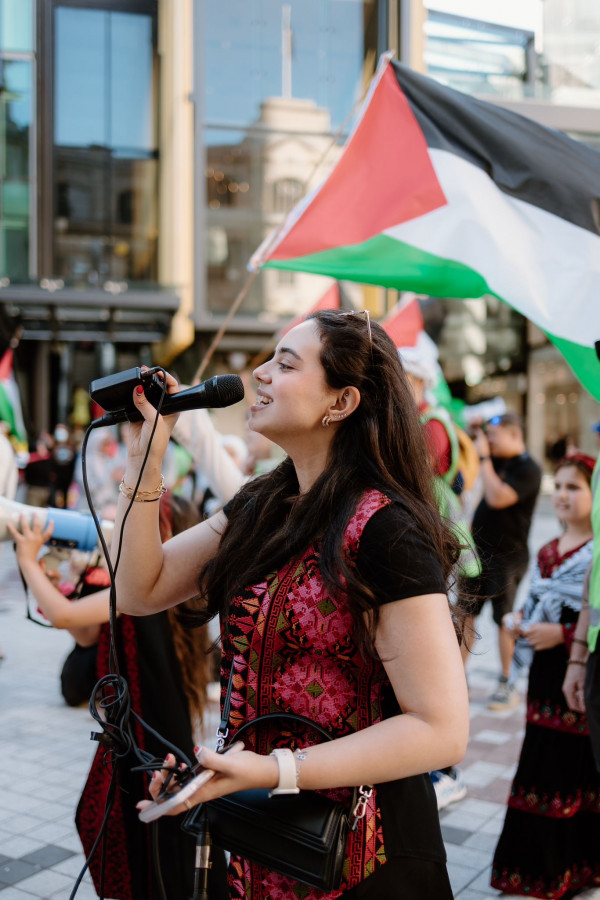
Kaiako/teacher Nadine Mortaja was born in Auckland. Her family is from Gaza, and she grew up in Kuwait and Qatar, moving back to Tāmaki Makaurau Auckland in 2017.
How does it feel to be on this side of the world and witness what's going on?
Nadine: Being on this side of the world while my family and people in Gaza are going through a genocide is the hardest thing I’ve had to experience.
I experience a massive feeling of survivor’s guilt and feel it is my job to spread awareness in Tāmaki Makaurau by any means necessary.
Did you think this was where we'd be one year later?
Nadine: No, I never thought we would still be protesting and marching a year later trying to tell people that killing innocent women, children and men is not okay.
What would you like to see happen?
Nadine: I would like to see an immediate ceasefire in Gaza. I would also like to see New Zealand recognise the state of Palestine and for our government to grant visas for our whānau in Gaza.
What are you doing in Aotearoa to show support?
Nadine: I have been involved in organising the rallies and marches in Tāmaki. I have also been one of the main chanters, chanting my heart out week after week on the streets of Queen Street for my family in Gaza.
Where do you hope to be in a year from now?
Nadine: I would hope that Gaza is in the process of being rebuilt from the ground up a year from now.
For all the injured to be given the medical treatment they deserve and for all the asra (prisoners) to be released from the Israeli prisons.
What do you think about the New Zealand government's response?
Nadine: Witnessing the New Zealand government’s response has been appalling to say the least.
It took Erica Stanford less than three weeks to [call on the government to grant] the Ukrainians visas during the Ukraine and Russia war.
Many Palestinians applied for visas to bring their family out of Gaza but they were declined by Erica Stanford [*It is Immigration NZ, not the Immigration Minister Erica Stanford, who declines or approves individual visa applications. Stanford however has not opened a special visa category for people in Gaza].
A year into the genocide[*] in Gaza and visas have not been granted yet.
[*In May, South Africa brought a case to the UN’s top court seeking an emergency halt to Israel’s offensive in Rafah and also accused Israel of genocide in Gaza. The International Court of Justice ruled South Africa had a right to bring its case and that Palestinians had “plausible rights to protection from genocide”. The president of the ICJ at the time later said that did not mean the ICJ had ruled it was plausible Israel was committing genocide.]
Juliet Moses
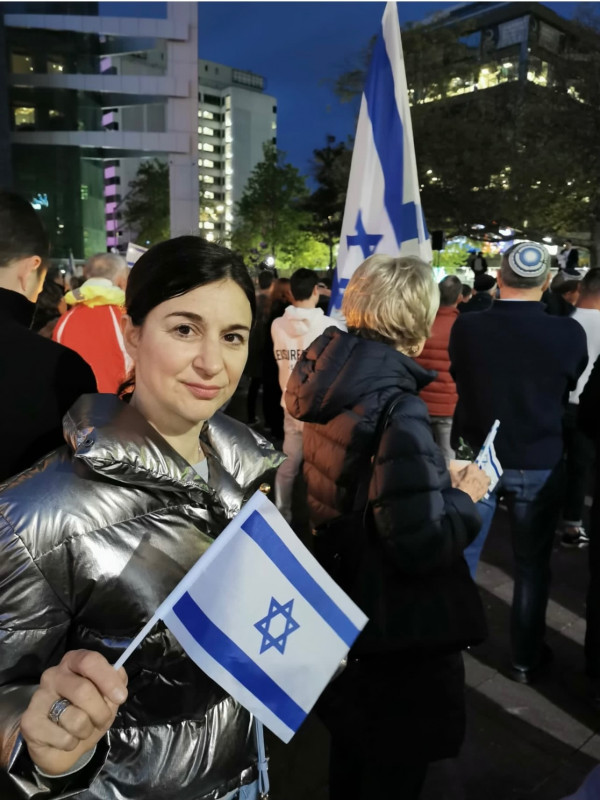
President of the New Zealand Jewish Council Juliet Moses was born and raised in New Zealand.
How does it feel to be on this side of the world and witness what's going on?
Juliet: To watch October 7 unfolding in real-time on social media and TV as Hamas breached Israel’s border and massacred civilians and knowing I could do nothing to help was horrifying and devastating.
It was even more horrifying and devastating to see this justified and celebrated.
It’s been a year of ongoing concern for family and friends in Israel as they come under attack on several fronts - including the ballistic missile attack from Iran (whose leaders clearly state they wish to annihilate Israel) of the last week - and of course distress at the carnage in Gaza.
Did you think this was where we'd be one year later?
Juliet: No. I did not think Hamas would still be holding over 100 hostages in Gaza or that the war would be ongoing.
I did not think Hezbollah would have fired over 8000 rockets, rendering the north of Israel uninhabitable, or that Israel would have been attacked by the Houthis in Yemen or directly by Iran.
I did not think I would see New Zealanders denying rape, ripping down hostage posters, or gleeful at the idea of a historically persecuted people who returned to their ancient homeland being stateless again.
Nor that I would see Jewish children [reporting being] bullied and assaulted in schools because of a war far away.
What would you like to see happen?
Juliet: I would like the hostages to be freed, and Hamas to not be able to repeat an attack like October 7 as it has threatened to do.
I want Israel to have secure borders, for people to accept its right to have them, and for both Jewish people and Palestinian people to have self-determination.
I want all the people of the region, including women, LGBT and minorities, like Kurds, Yazidis and Christians, to live freely and safely.
I would also like to see the media report better on the region, including the role of the Iranian regime and how it and its proxies have terrorised the people of the region.
What are you doing in Aotearoa to show support?
Juliet: Our community has been holding vigils and rallies for the hostages, fundraising for the victims, and raising awareness in other ways. We will be holding memorials behind closed doors on Monday.
Where do you hope to be in a year from now?
Juliet: I will be here and hope that there will be real peace in the Middle East and that the Abraham Accords will be extended to other states.
I believe most of the people of Iran want to be freed from the regime that oppresses them and to have peace with Israel.
It might not happen within a year, but when it does happen a better future awaits the people of the Middle East – one of peace and prosperity.
What do you think about the New Zealand government's response?
Juliet: It has been very muddled.
Taimor Hazou
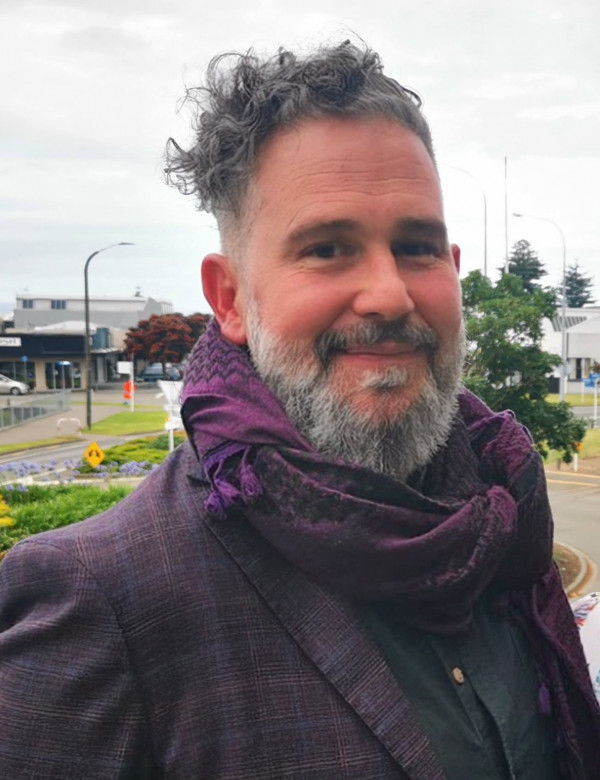
Taimor was born and raised in Jordan before moving to Australia at 19. His father was a Palestinian refugee from Jerusalem and his mother a New Zealander. He lives in New Zealand.
How does it feel to be on this side of the world and witness what's going on?
Taimor: It’s a mix of heartbreak, anxiety and frustration. Being here in Aotearoa, I and many others in the community wear the guilt of being spared the suffering but are crippled by concern for family and worry for our people.
Distance does not dilute the suffering we watch daily; injustice is magnified by the double standards of the Coalition Government and the shield of impunity the US provides Israel.
Did you think this was where we'd be one year later?
Taimor: Tragically, yes. The patterns of violence, ethnic cleansing, and impunity have been entrenched for decades. Israel’s apartheid regime has systematically brutalised Palestinians, with each new assault building on the last.
The only difference from the past is the magnitude of death and destruction by Israel.
The international community’s failure to hold Israel and its leadership accountable over the decades is now undisputable and unjustifiable with the magnitude of disproportional death and destruction meted out on Palestinian civilians.
[Note: In May, South Africa brought a case to the UN’s top court seeking an emergency halt to Israel’s offensive in Rafah and also accuse Israel of genocide in Gaza. The International Court of Justice ruled South Africa had a right to bring its case and that Palestinians had “plausible rights to protection from genocide”. The president of the ICJ at the time later said that did not mean the ICJ had ruled it was plausible Israel was committing genocide.]
What would you like to see happen?
Taimor: We need immediate and sustained action on several fronts.
First, an urgent ceasefire to stop the killing.
Next, New Zealand and the international community must push for real accountability, using international law to hold Israeli officials responsible for war crimes and violations of human rights.
The blockade of Gaza must end, and humanitarian aid must be allowed to flow freely.
Long-term, Palestinians must achieve self-determination—a real, viable state as promised by countless UN resolutions.
This isn't just about a ceasefire, it's about addressing the root causes of oppression.
What are you doing in Aotearoa to show support?
Taimor: Mainly building capacity and supporting the efforts of others in the community to engage and influence media, public policy and build support for the inalienable Palestinian Right by New Zealanders.
This has included public campaigning, coalition building and developing responses to the wider spread of misinformation, inaccuracies and blatant biases in support of Israel.
The bias within Aotearoa is blatant and goes unquestioned.
Where do you hope to be in a year from now?
Taimor: In a year, I hope we’re not talking about another round of violence and death.
I hope to see real movement towards implementation of the ICJ ruling — whether through an end to the occupation, the dismantling of illegal settlements, or concrete steps toward Palestinian self-determination.
I hope New Zealanders hold this government to account and demand they continue the track record of the last four decades of leadership on human rights, humanitarian law and international governance and order.
Nothing the Palestinians are asking for is out of step with the principles of human rights, that we were all brought up with in Aotearoa.
What do you think about the New Zealand government's response?
Taimor: The New Zealand government’s response has been too little, too late!
Our vote on the UN General Assembly motion in support of Palestinian membership was a great step.
But with so many war crimes so early on, and international experts on genocide and human rights warning in the very first months of the conflict against the tragedy to come, it should not have taken 40,000+ Palestinian lives (51% being women and children) for the Coalition Government to find the mettle to speak in support of the Geneva Conventions and the humanitarian law.
New Zealand clearly does not value Arab lives in the same way it does Pākehā lives. It took a month to demand and issue Special Category Visas for Ukrainians, with less than a quarter of the death rate of Palestinians.
It's ironic that a law and order government that spends its whole time arguing about equality, doesn't have the courage of conviction to stand up for Arab lives or condemn Israel for apartheid discrimination.
Avigail Allan
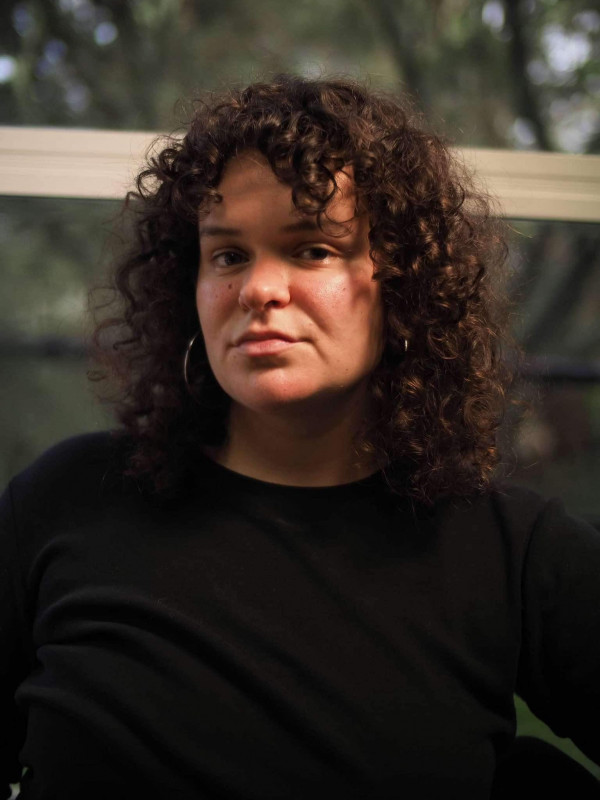
Avigail Allan grew up in Tel Aviv and moved to Aotearoa at the age of four.
She co-founded the organisation Dayenu: New Zealand Jews Against Occupation.
How does it feel to be on this side of the world and witness what's going on?
Avigail: It’s very surreal and distressing, my life is completely different now.
I am a Jewish Israeli New Zealander and I am also pro-Palestine.
The thing is, if you were against the slaughter of Jewish people in World War II you wouldn't say you were pro-Jewish - you would say you were just standing up for the right thing.
I really stand up for Palestinian human rights and civil rights, which is so difficult and which presents so many challenges.
Half my life is still over there [in Israel], my family lives there, my grandparents, my great grandparents and my great great grandparents are buried there and I’m spiritually connected there too.
But now I’ve never felt more disconnected and it calls into question who I am.
My family is in great distress but despite our differences I still really love them. Palestinians are my whanaunga (relatives), and I grew up with them as well, they are my friends.
They [Palestinians] have lived there for far more generations than I have and seeing them suffer and slaughtered is just unbelievable.
I’m going through so many things that most New Zealanders wouldn't know about, I'm estranged from my family but at least my family are alive.
I just feel so much loss and so much grief, it's taken this effect on my mental health and my physical health, my body, that is unbelievable.
It's so scary and I just don't know what my future looks like at all.
Did you think this was where we'd be one year later?
Avigail: I was always worried that something like this would happen.
I knew from the second it happened it was going to be unimaginably bad, cause this has been a problem for a long time.
I just didn't expect to see such worldwide complicity.
If you’re upset with what Hamas did [on October 7, 2023] then you should be more than appalled by what Israel is doing.
I’ve been in the Palestine movement now for about eight years, since the last incursion on Gaza in 2014 that was really serious and that's what made me really fight for Palestinians' freedom and self-determination.
It’s just so shocking to see how racist my government and state are towards Palestinians with our own historical experiences.
Not all jews agree with this at all. The contradiction is we’ve been through this before and a lot of jews are denying this genocide and justifying it but a huge amount of jews who have been touched by genocide themselves are horrified and feel betrayed and upset.
What would you like to see happen?
Avigail: I would like to see Palestinians have freedom, self-determination, mana motuhake and tino rangatiratanga.
They don’t have freedom and rights like we have.
I want to see a free Palestine, however that looks.
This mess all started in 1948 when we expelled Palestinians from their homes and emptied 500 villages. It wasn't so great before that but we established a country on top of one already there.
We have to right that wrong, that's what I wanna see happen.
What are you doing in Aotearoa to show support?
Avigail: I am standing in solidarity with Palestinians who are facing genocide, let's just call it for what it is.
I help run NZ Jews Against Occupation and we just support local groups which are Palestinian-led.
We support the rallies and we’ve been campaigning, trying to mobilise people.
We’re also doing it for ourselves, unfortunately, our group has been shut out of the mainstream Jewish community, especially over the last year.
Our mainstream Jewish community often excluded our own Jewish community all the time.
Jews who are critical of Israel are left out by the mainstream Jewish community and there is an unbelievable amount of bullying and abuse, cyber abuse.
Where do you hope to be in a year from now?
Avigail: The situation right now is so bad and I look at people in New Zealand and I just wonder how they are living a normal life. I feel like I’m in a nightmare and I haven't woken up.
The killing has to stop, the killing of children has to stop.
If you are against the killing of our people, you should be against the killing of everyone, it's that simple.
We are not free if we have our boot on someone else’s neck.
What do you think about the New Zealand government's response?
Avigail: I’m really angry, it's embarrassing.
I feel the New Zealand government wants this to happen, there's so much they could do. They could condemn Israel. I want them to get rid of the ambassador.
I honestly think they don’t want to upset America. I feel like this country's foreign policy is to become closer to America and that’s their strategy and the USA is funding the whole genocide.
Darya Bing
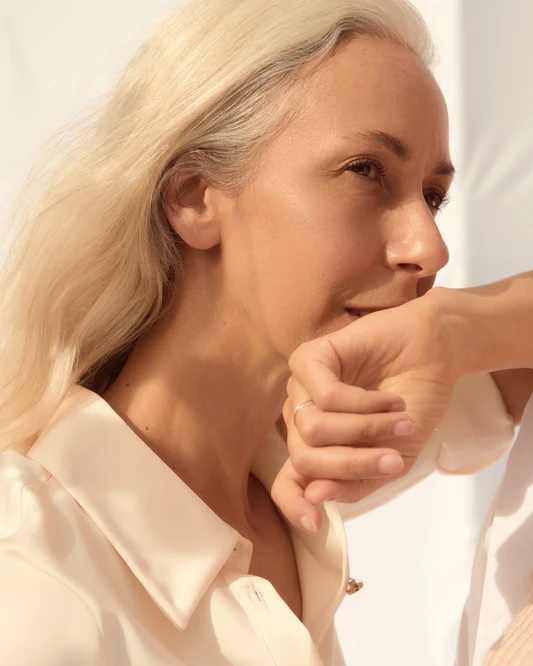
Darya Bing is an Israeli New Zealander from a family of Moroccan Jewish refugees who lives in New Zealand.
How does it feel to be on this side of the world and witness what's going on?
Darya: It's tough, I'm concerned about the loss of innocent life, the safety of loved ones, the safety of Israel, and what remains now of the prospects for peace.
Most Israelis and Jews are very invested in the burgeoning peace between Israel and the Gulf Arab states prior to the attacks on Israel by Hamas, Hezbollah, and the Islamic Revolutionary Guard.
The Abraham Accords is the greatest opportunity that we have for a paradigm shift in the region and it is now under threat which of course was the main purpose of the extremist groups that initiated the war. [*Hamas leaders have told media the purpose of their October 7 attacks was to revive the Palestinian cause, creating a permanent state of war with Israel in the hope of support from the Arab world.]
Did you think this was where we'd be one year later?
Darya: No, I naively expected that the global community would remain steadfast in its rejection of extremist groups and the support for the safety and rights of sovereign states to protect their civilians.
Instead, we have seen a worrying amount of moral and political confusion and cowardice that is deeply concerning.
What would you like to see happen?
Darya: For the world to reject extremism and support and invest in the Abraham Peace Accords with the Gulf Arab states to help facilitate normalisation between Israel and its neighbours and bring about a just and sustainable peace.
Locally I would like to see a greater commitment by the government academia, schools and media against incitement to violence and racial hatred/antisemitism.
I would also like to see more community leaders speaking up for peace and building bridges between communities.
Lastly, for social media conditional activists to stop the spread of selective outrage misinformation.
What are you doing in Aotearoa to show support?
Darya: Many don’t know that our community in New Zealand is 0.1% of the population. The burden to address the high levels of hate and provide security for this community is overwhelming.
We work to protect our small community, especially our children and young families that are personally, and directly affected by the loss of family members.
We also prioritise dialogue with organisations and other communities to build mutual understanding of personal experience, with the hope for people to consider unity instead of division.
Where do you hope to be in a year from now?
Darya: For the return of all the hostages and the cessation of hostilities.
For there to be more concrete social reforms, like gender equality, the right to education, economic growth and opportunities, such as is taking place in the Gulf Arab states. This is a prerequisite for deradicalisation and stability.
What do you think about the New Zealand government's response?
Darya: The peace/autonomy of Palestinians/Arabs and Israelis is not mutually exclusive. We can be concerned for the harm being caused to all involved and advocate for all innocents without demonising and dehumanising each other.
Our government has a responsibility to show leadership, and take a clearer and more consistent moral stance against extremism and the justification of political or ideological violence.
New Zealand government’s response
A spokesperson for Minister of Foreign Affairs Winston Peters told Re: News New Zealand has been actively involved in trying to end the Israel-Hamas and Israel-Lebanon conflicts.
“We take a principled and issues-based approach that is rooted in international law, and which supports Israel’s secure existence alongside support for a viable Palestinian state.
“This has involved clearly and consistently calling-out breaches of international law by any party, as well as making meaningful humanitarian contributions to alleviate civilian suffering.
“New Zealand has also consistently supported international legal institutions such as the International Court of Justice and the International Criminal Court.
“We will continue to be guided by support for international law and support for a two-state solution – the only viable way to ensure peace between Israel and the Palestinians.”
The spokesperson said the position on Gaza remains clear and consistent and that they have called for a ceasefire in Gaza, called on Hamas to release hostages, called on the parties to negotiate a two-state solution, and have committed $22 million in humanitarian aid.
In a statement, Minister of Immigration Erica Stanford acknowledged the humanitarian situation in Gaza is incredibly difficult.
“I acknowledge these are very challenging circumstances for people and their family in New Zealand.
“In mid-May, I took an oral item to Cabinet to provide an update on immigration matters in relation to Gaza. The view of Cabinet at that time was to retain current visa settings.
“While the current visa settings are being retained, the Government is maintaining an open mind, and officials are monitoring the situation closely. All decisions taken in relation to New Zealand's response to international conflicts are context dependent and are decisions for Cabinet.
“Our current focus, led by the Minister of Foreign Affairs, is on providing funding for humanitarian support and using our voice to support the release of Israeli hostages and a ceasefire.”
Minister Stanford said she received weekly updates on the visas issued to those affected by the crisis and has regular conversations with officials.
More stories:
By the numbers: One year on from the October 7 attack
Thousands are dead or missing and nearly an entire population displaced.
Lawyers call for inquiry into whether NZ intelligence is helping Israel
“We’re in uncharted territory.”
Māori are twice as likely to die from accidental drug overdose
The stigma on Māori using drugs can cause a “sense of shame”, a researcher says.